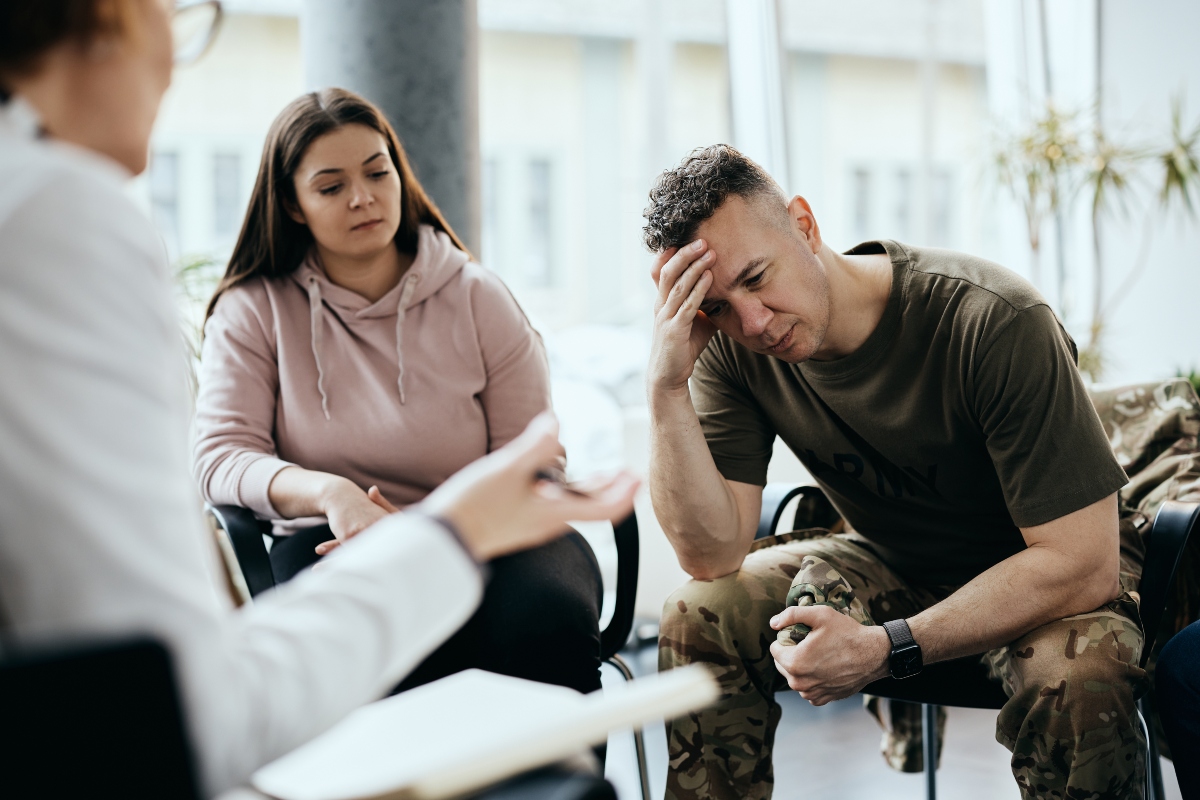Loss and Grief Therapy Group
Loss is a part of life, but a painful one. When you have lost a person you care for, you might find it nearly impossible to continue your life as before. Tragically, some people can minimize the pain others feel, whether it is because it was an elderly loved one, or because the loss came in the form of a breakup or abandonment rather than death. At Solara, we understand that all loss is painful, and that grief is real no matter what the circumstances. That’s why we’ve chosen to practice Grief and Loss Counseling in San Diego, helping others grieve in a healthy way.
Understanding Grief and Loss
Even when loss has been experienced before, it isn’t unusual for the response to a particular loss to be dramatically different than previous ones. The reaction to loss is shaped by life experiences, the relationship with the person lost, as well as the personality and culture of the person grieving. Grief is expressed in many different ways. Some common expressions are crying, fatigue, loss of appetite, difficulty sleeping, isolating yourself, anxiety, frustration, and questioning. In severe cases, it can lead to depression, post traumatic stress disorder (PTSD), suicidal ideation, and physical illness.
Grief is also experienced differently by children than it is by adults. Children under the age of 7 often feel abandoned when a person they know dies. They might fear being alone, and often act out after experiencing a loss. They might regress, losing their ability to use the toilet or speak. Slightly older children, between 7 and 12, often try to protect themselves in the aftermath of death. Teenagers respond much like adults, but often more dramatically. They may throw themselves into a religious group that provides answers, or they might take part in dangerous activities such as drug use and reckless driving. Keep an eye out for suicidal thoughts in children and teens that have experienced a loss.
When a loved one dies, people often never fully “get over” it. They may move through the period of intense grief, but they will always remember that person, and there may be days many years in the future when they miss them terribly. After the loss of a parent, spouse, or child, a person can experience a form of grief for decades or the rest of their life. This is normal, as long as it does not prevent them from living their own life.
Complicated grief is a term for the persistent bereavement that interferes with daily life for a long time. Symptoms include intense sadness, feelings of emptiness, bitterness, lack of interest in personal plans, difficulty looking back on happy memories and preoccupation with the deceased. If these feelings are unrelenting, grief therapy can be a helpful way to move through them and get back to daily life.
What to Expect from Grief Therapy
It’s often helpful to understand what to expect from therapy for grief or loss. There are a few major goals that most grief and loss therapy facilities pursue. These include:
- Developing an increased understanding of grief and loss. Learning to describe one’s emotions and develop a short-term plan for managing those emotions.
- Accepting responsibility for change. Helping patients identify the issues grief is causing and commit to letting them go.
- Correcting irrational thinking linked to past loss. If there are specific areas of cognitive distortion, the therapist will challenge those irrational thoughts.
- Dealing with uncomfortable feelings. These can include survivor’s guilt, as well as sadness.
- Decreasing extreme grief. Extreme grief is a risk factor for substance abuse and other dangerous behaviors, so learning coping strategies is always a priority.
Getting Help with Grief
The loss of a loved one—whether through death, abandonment, breakup or other circumstances—can be a profoundly painful, isolating experience. For veterans struggling with the loss of a loved one, Solara Mental Health offers a grief and loss therapy group. In this safe, understanding, and compassionate environment, veterans come together as peers to explore the emotions related to their loss. Veterans at our mental health care center are encouraged to share their feelings openly and honestly, and as they do so, they find a supportive community and come to feel that they are not alone in their struggles, helping lay the foundation for healing and peace.
If you have recently (or not-so-recently) experienced a major loss and are having difficulty moving forward, you might benefit from therapy and a support group. When everyone else around you is continuing as if nothing has changed, and you feel like your whole world has been shattered, it can be comforting to spend time with others who are going through the same thing. Your Solara support group will also give you the opportunity to share coping strategies that have worked well for you, and to learn from your peers.
For more information about our grief and loss group, or about any other therapy groups offered at Solara Mental Health, please contact us.


